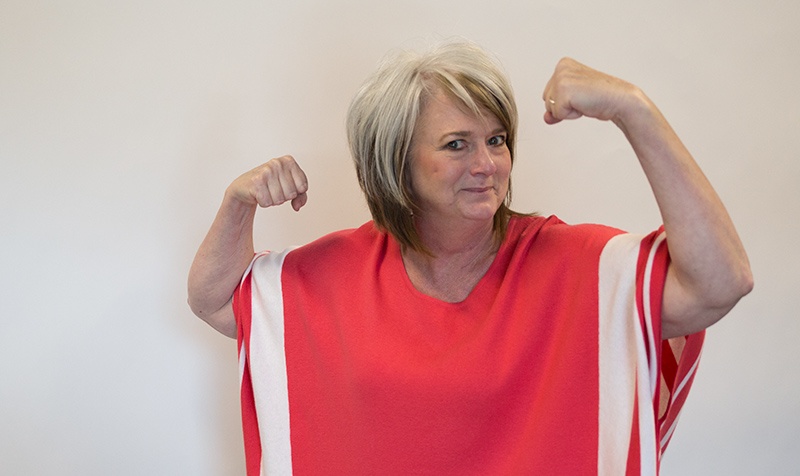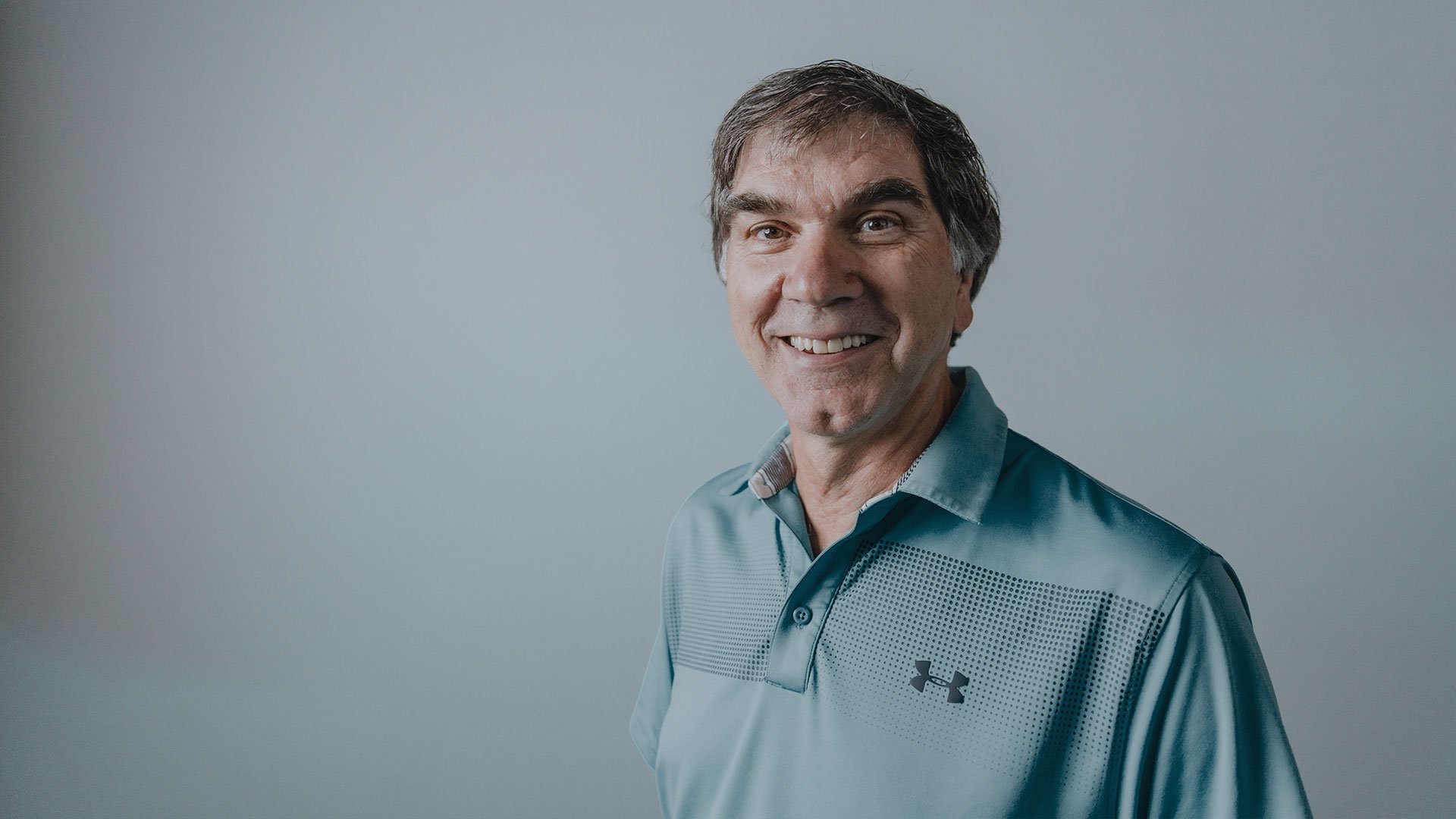2 min read
Gospel-Centered from the Start
“Let us hold unswervingly to the hope we profess, for He Who promised is faithful…Jesus Christ is the same yesterday, today, and forever.” (Hebrews...
3 min read
 Barbara Comito, former marketing director
:
April 19, 2018
Barbara Comito, former marketing director
:
April 19, 2018
I am highly susceptible to self-improvement plans, especially those that lay out steps to success: Do these 5 things and you will be a better wife, mother, employee, friend, Christian. I desperately want someone to show me the way to be the best me I can be.
For some of you, red flags are waving madly in your brain right now, but since the self-improvement market was valued at $9.9 billion in 2016, I’m guessing many of you are as susceptible as I am.
We want to be thinner, smarter, richer, fitter, better organized, more fashionable, more successful. We want to have better marriages, be better parents, enable our children to be more successful, cook healthier, more delicious meals, make our homes more welcoming and Pinterest-worthy, travel, save for retirement.
We want to rise within our careers, be respected in the church and the community. We want our posts to go viral and our Instagram accounts to present an aesthetic-pleasing, enviable life.

And, for the most part, there’s nothing wrong with any of that…until it becomes my focus.
The Christian faith is not primarily a self-improvement plan, and when I make the Bible a step-by-step guide to a better version of myself, I trivialize God’s revelation.
The Bible is primarily about God, not me.
The first question and answer in the Westminster Shorter Catechism, a centuries-old tool for teaching the basics of the faith, focuses on the meaning of life:
Q: What is the chief end of man?
A: The chief end of man is to glorify God and enjoy him forever.
One might argue that the way to glorify God is to become the best version of yourself. In fact, I think I’ve heard that theme from the pulpit, in books and blogs and in general conversation with other believers. I’ve even prayed along those lines for myself, my husband and my children: “Lord, make me the woman you want me to be.”
Nothing wrong with the words, but my intent is probably more like this: “Make me into a self-sufficient woman who does great things and looks good doing it.” Almost as if my goal is to use God to become a better me so that I can eventually get by without him.
“Focusing on self is the opposite of focusing on God. Anyone completely absorbed in self ignores God, ends up thinking more about self than God. That person ignores who God is and what he is doing. And God isn’t pleased at being ignored.” (Romans 8:7-8, The Message)
In other words, the first and biggest problem with seeing Christianity as a self-improvement plan is that it dishonors God and makes me the focus of my life. Christianity becomes a means to an end, my end, my goals, my glorification.

The second big problem with obsessing over self-improvement is that it minimizes grace.
“But he said to me, ‘My grace is sufficient for you, for my power is made perfect in weakness.’ Therefore I will boast all the more gladly about my weaknesses, so that Christ's power may rest on me” (2 Corinthians 12:9).
In the chapter before the above quote, after listing all his qualifications as an apostle, Paul ends by saying, “If I must boast, I will boast of the things that show my weakness.” Because when we are weak, we recognize our need for God. We recognize that, for all our efforts to be better, smarter, faster, stronger, we are but dust, and without him, we can do nothing.
“The Christian life consists in what God does for us, not what we do for God” – Eugene Peterson.
Finally, self-improvement is a cruel task master. In general, the focus of the industry is on appearance and performance, not the state of the heart, and the standard for improvement is usually based on comparison. By its very nature, it sets me up for failure and self-hatred.
Some hard facts:
Self-improvement, in and of itself, isn’t bad, but as Christians, it shouldn’t be our ultimate focus. God – knowing him, loving him, serving him – is our focus, and when we commit ourselves to that relationship, we will be changed. The change might not look exactly like we would like. We may not be thinner, smarter, richer, but he promises not to leave us as he found us.
He promises to turn our hearts of stone into hearts of flesh – capable of loving others. He promises to open our eyes and ears – to him, to his wonders.
Maybe it’s time to let go of our obsession with self-improvement.
Consider these words from Eugene Peterson:
“I want to simplify your lives. When others are telling you to read more, I want to tell you to read less; when others are telling you to do more, I want to tell you to do less. The world does not need more of you; it needs more of God. Your friends do not need more of you; they need more of God. And you don’t need more of you; you need more of God.”
Sometimes our urge for self-improvement comes from how we think we stack up in comparison with others. But we all need grace, young or old, rich or poor. So why does God seem to show special favor to the poor in the Bible? This free ebook explores that question.

2 min read
“Let us hold unswervingly to the hope we profess, for He Who promised is faithful…Jesus Christ is the same yesterday, today, and forever.” (Hebrews...

9 min read
To celebrate 75 years of serving the Inland Northwest, we are spending the year remembering our history and the faithfulness that built us and...

2 min read
In 2026, Union Gospel Mission Inland Northwest is approaching our 75th Anniversary! This is a milestone that invites gratitude and reflection, and...

“As one whom his mother comforts, so I will comfort you.” (Isaiah 66:13) For the past ten years, I’ve been teaching the UGM women’s Bible study. I...

At UGM, we believe that the gospel has power to transform lives. Conformity to a set of rules alone doesn’t work. Real change happens from the inside...

By Sonny Westbrook, Director of Ministries The celebration of the resurrection of our Lord Jesus Christ from the dead is a high point of the year for...